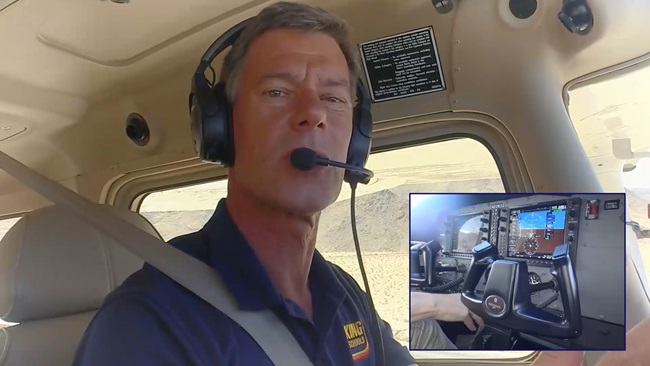This will be on the test
How to track the FAA’s topic-turnover timetable
True or false: Questions about ADS-B Out were added to the Private Pilot–Airplane and Helicopter Airman Knowledge Test Bank effective March 30, 2020.
True—just one of many changes to airman training and testing that have taken effect recently or are in the works for students, advanced pilots, and flight instructors, in or out of the cockpit.
That handbook’s many-faceted update is one of several listed in the FAA reference document What's New and Upcoming in Airman Testing. Instructors will find that the revision includes expanded treatment of scenario-based training, a new chapter about teaching practical risk management, updates on submitting airman certificate applications through the Integrated Airman Certification and Rating Application (IACRA) system, and other editorial changes.
Other handbook updates now in the works (with release dates not yet announced) include such standard study volumes as the Airplane Flying Handbook, the Instrument Flying Handbook, and the Pilot’s Handbook of Aeronautical Knowledge.
The reference document includes useful information on changes in knowledge testing procedures, how to locate a testing center, and recent revisions to knowledge test reports.
As you probably know, since 2016 the long-used practical test standards volumes have been giving way gradually to the enhanced and more fully integrated airman certification standards, with the earliest ACS volumes already moving beyond their first revisions. (Always make sure you are preparing for your practical test with the current version.)
As that process continues, quite a few original ACS versions are now in development, as learners preparing for private and commercial pilot practical tests in helicopters, as well as helicopter instrument ratings, will be interested to know. The various ACS volumes are organized by elements of aeronautical knowledge, decision making, and skills.
The Aviation Instructor ACS is also under development, as is an Inspection Authorization Testing Standard (for aviation mechanics).
AOPA has been a strong advocate for the switch to ACS as a leading participant in the FAA’s Aviation Rulemaking Advisory Committee’s Airman Certification System Working Group that developed the new standards. The next meeting of that panel will be a virtual session on June 23, said Christopher Cooper, AOPA director of regulatory affairs, who will again represent AOPA members in the working group.
Helping pilots train efficiently by making them aware of what’s new only works if pilots are informed about what is obsolete and no longer on the test. One item now removed from airman knowledge test banks is any question about the hazardous in-flight weather advisory service now that the service has been discontinued.
As aviation systems and services come and go, official terminology evolves, and the federal aviation regulations change, knowledge tests must be updated to match.
You can check the What's New and Upcoming in Airman Testing document to see how and when specific knowledge-test question banks will reflect the changes: For example on June 29, questions about intentional GPS interference, a subject about which pilots are extremely mindful, will be added to the Instrument–Airplane Airman knowledge test bank.




